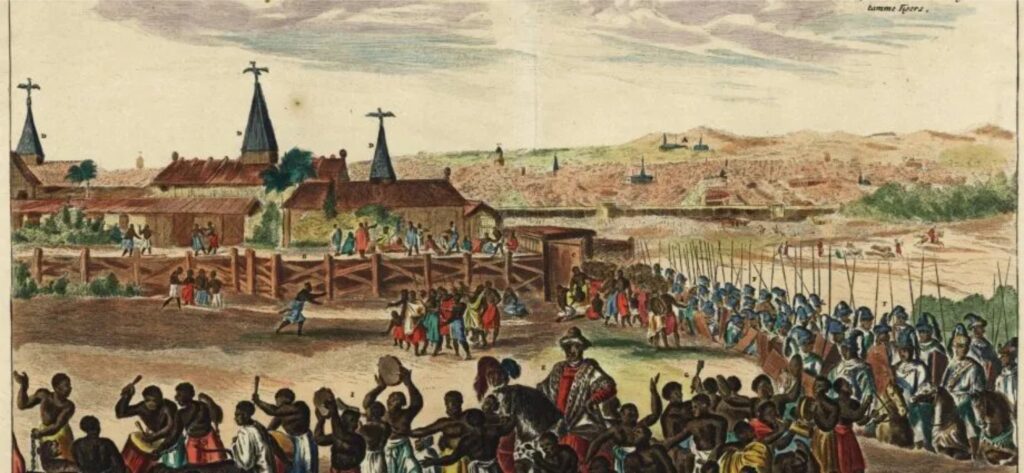The sun hadn’t yet climbed above the rooftops, but the streets were already alive with motion. In every corner of Nigeria, from the winding alleys of Mushin to the open roads of Enugu, the same scene unfolds at dawn. A woman sits behind a wide metal bowl, stirring a thick bean paste with practiced rhythm. Beside her, oil bubbles in a blackened pan. The smell of frying akara wafts into the morning air, cutting through sleepiness and pulling people out of their homes like a ritual.
There is a magic to the street breakfast. You do not need a clock to know when it starts. The aroma of sizzling beans and the sight of puff-puff rolling out on trays is all the invitation you need. These meals are not fancy. They are not plated for Instagram. But they carry a weight of memory that fine dining will never touch.
People gather in small groups, sometimes in silence, other times with loud laughter. Workers, schoolchildren, mothers with babies tied to their backs, and men already dressed for the day’s hustle queue up beside a small stall or a pushcart. Everyone is equal at an akara stand. The woman selling it might remember your order from yesterday. She might remind you to bring your change tomorrow. Her hands move fast, scooping hot pieces into old newspaper wraps, sometimes served with soft bread or pap in a plastic bag tied like a balloon.
When asked about their memories of street breakfasts, many Nigerians recall it as more than just food. For Chisom, a 28-year-old in Aba, akara meant Saturday mornings with her father. “We’d walk down to the same woman’s stall every week. She knew him since he was a child. He said she made the same akara when he was in primary school.”
For Divine in Kaduna, it was about community. “Tuwo and akara in the morning, shared with neighbors who became family. You hear news, gossip, jokes, and politics over food. You start your day with a full belly and a full heart.”
These memories are stitched into the culture of everyday life. The woman who fries akara might not have a storefront, but her spot is known, revered, and protected by her regulars. Her small fire feeds an entire neighborhood. Her routine becomes the soundtrack of someone’s youth. The smell of hot oil and beans takes people back to the times when the world was simpler, and love was wrapped in brown paper.
Street breakfasts are not just about convenience. They are about identity. Each region adds its twist. In Ibadan, akara is paired with eko, a firm cornmeal pudding that balances the heat. In Jos, sweet kunu might wash it all down. In Port Harcourt, the addition of pepper sauce adds a kick that wakes the senses.
But what makes these meals sacred is not what they are made of. It is what they represent. They are early-morning confessions between friends. They are the comfort of familiarity before the chaos of the day. They are proof that culture does not always come in big ceremonies or elaborate traditions. Sometimes, it comes in the form of three hot balls of akara handed to you by someone who knows your face.
Today, as cities modernize and global breakfast trends creep in, the akara woman still holds her ground. She may have moved her stall, upgraded her pot, or changed her supplier, but her purpose remains the same. She offers more than food. She offers a beginning, a memory, a sense of belonging.
When we talk about Nigerian culture, we often think of kings, palaces, and ancient traditions. But culture also lives in the quiet spaces of everyday life. It lives in the sound of akara frying at sunrise, in the soft nod of recognition between seller and buyer, in the first bite of a morning wrapped in warmth.
Akara mornings made us. And every time we return to that stand, that memory, that flavor, we are reminded of who we are.
References
- “Akara – A Deep-Fried Legacy of Bean Cakes”
https://www.pulse.ng/lifestyle/food-travel/nigerian-food-how-to-make-akara/lt3hd7v - “The Nigerian Street Breakfast Culture” – Culture Custodian
https://culturecustodian.com/street-food-in-nigeria-akara/ - “Akara and the Nigerian Morning Experience” – Food History Africa
https://www.foodhistoryafrica.org/akara-and-nigerian-mornings - “Why Nigerians Still Love Street Food” – CNN Africa
https://edition.cnn.com/2018/09/26/africa/nigerian-street-food/index.html


